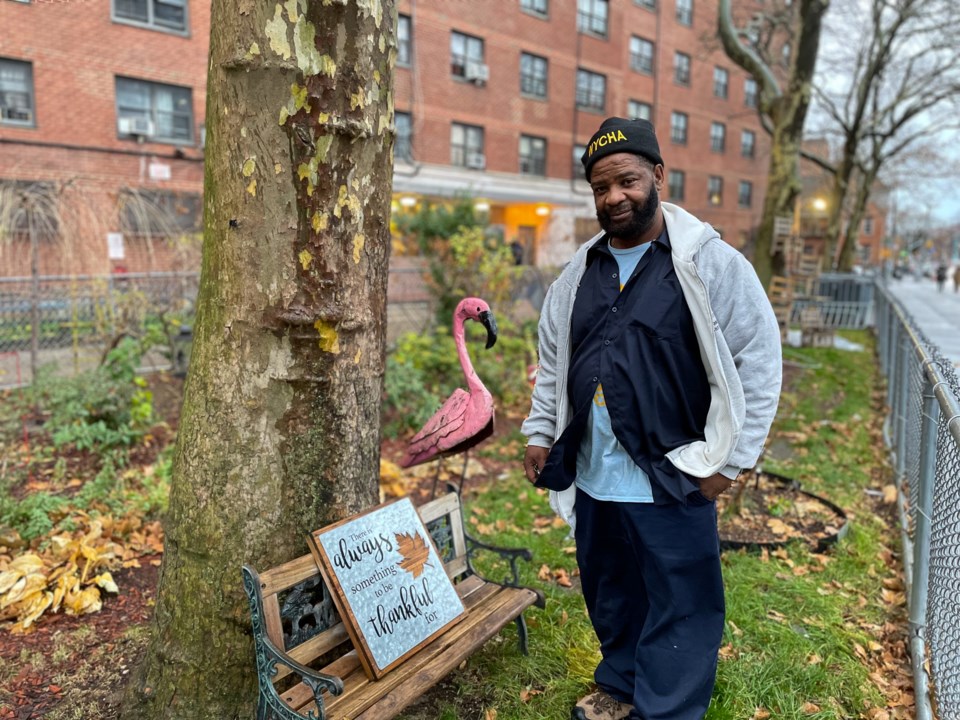One year after BK Reader covered the story of how the Brooklyn community saved nine gardens at a Bed-Stuy New York City Housing Authority housing complex from being torn up due to rats, the volunteer behind the gardens is promising to make the coming spring the gardens' best.
John Cook started building the gardens about 15 years ago, two years after he started working doing maintenance for NYCHA at its Lafayette Gardens complex on Lafayette Avenue.
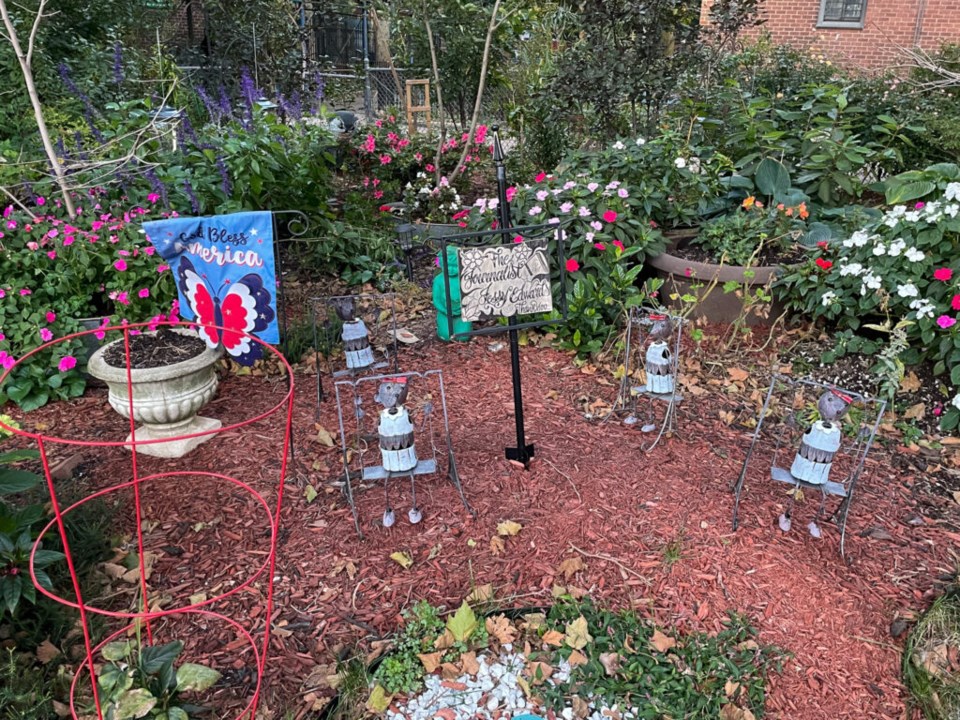
With a background in gardening (Cook worked for years as an assistant gardener for the NYC Parks Department), he started spending his spare time and money designing and planting at the complex, after getting off work from NYCHA.
By 2021, he’d built nine flourishing gardens filled with hydrangeas, azaleas, roses, cherry blossoms, weeping willows, statuettes of angels and even the remains of some residents’ mothers and dearly-departed pets.
However, that year, the pandemic saw the city's rat population explode.
At Lafayette Gardens, NYCHA’s pest control team told Cook that his gardens must be cut back or uplifted so that it could treat the mounting rat problem.
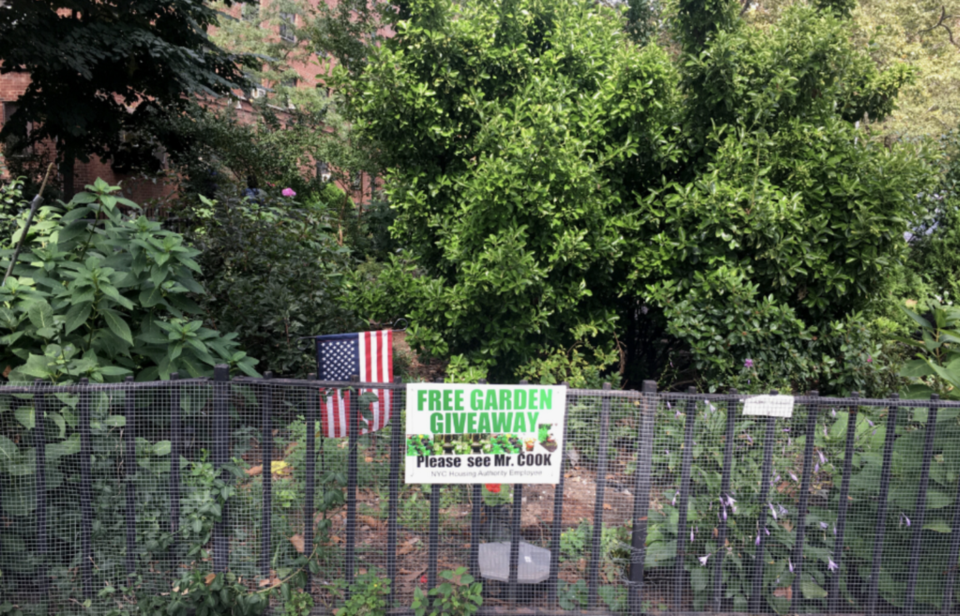
BK Reader interviewed Cook, and published a story on his gardens. Devastated, and unable to negotiate a rat treatment plan with the City, Cook was asking for the community's help to take and adopt his beloved plants.
The community pitched in to help more than he could have imagined.
Community gardeners came to help re-home plants and shrubs. Teachers from schools in Brownsville, Canarsie and the Lower East Side took plants away in buckets to “foster.”
One teacher who is involved with the non-profit Big Brothers Big Sisters of America contacted a congressperson (Cook isn't sure who) who contacted NYCHA, which then got back in touch with Cook to let him know they would work with him to save the gardens.
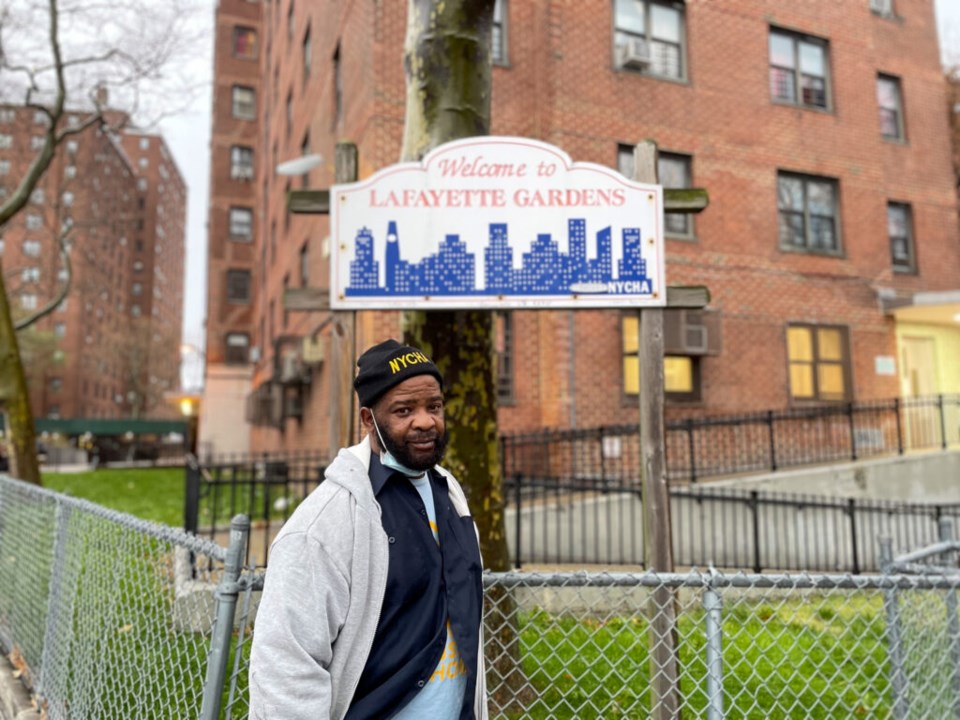
Since then, Cook can only describe what has happened as "magic."
After going to battle with a leader in NYCHA's rodent team over his gardens, Cook told BK Reader he finally managed to sit down with the city official and find a "first of its kind" solution to the problem.
"After the article, we sat down and we discussed, look, 'We're all under stress, rats are a city problem and something we need to work on together.' I come to find out this man is a fabulous human being."
He's now proud to say Lafayette Gardens is one of the first NYCHA developments to be fitted with new outdoor receptacles designed to trap and poison small rodents. The boxes can be moved around the complex depending on where the problem is worst.
"We still have rats issues, but the population is down very low," Cook said. "It's just been so wonderful."
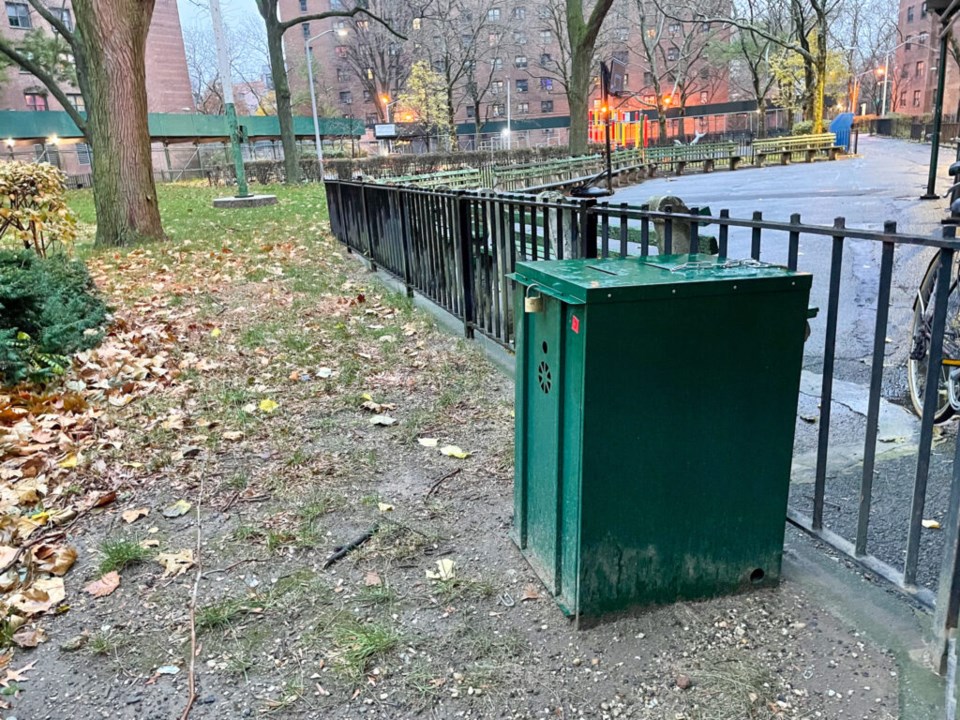
After receiving the love and support of the community so fully, Cook also poured himself into creating the most beautiful garden he could, to say 'Thank you.'
The Big Brothers Big Sisters of America pooled money and bought Cook a wishlist of plants to rebuild, and he packed the gardens with flowers and trees.
For the teachers who helped, he created a spiral sculpture made out of tiny chairs from a school classroom. The sculpture curves around one of the trees in the garden.
For those who had scattered their loved-ones ashes in the gardens, he erected a small tombstone, as well as to honor the spirits who helped the gardens survive.
And, for those with a sense of humor, Cook installed a group of metal sculptures of cheeky rats wearing dresses and bows in their hair. "They're like a mockery of the situation," Cook laughed. "They called it the rat garden, and the rats are creative."
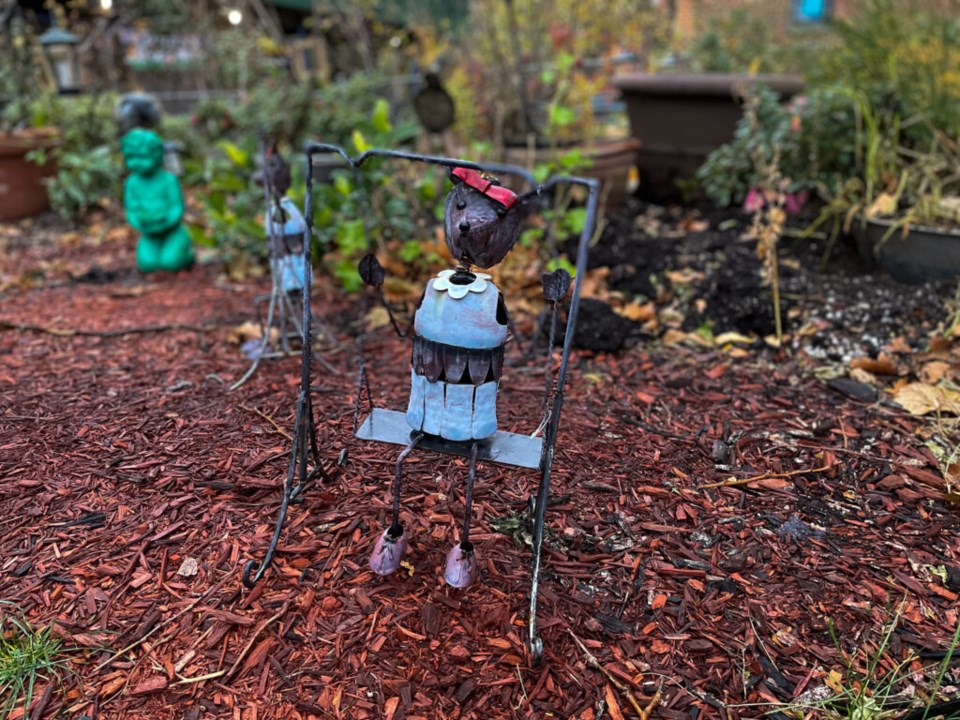
For the birds, bird feeders and LED lanterns to light the garden up at night. A Japanese maple he was worried wouldn't survive has flourished, and the rat problem is easing.
To say thank you to BK Reader, Cook commissioned a tattoo artist to make a sign naming one garden the "Jessy Edwards Journalist Garden," with drawings of notepads and pens.
Meanwhile, Cook said he met hundreds of people through the experience of publicly fighting for his gardens.
Visitors who had come by to give him words of support in the past year included a pair of nuns, a band member from the Grateful Dead, and an unemployed art teacher who ended up meeting other teachers at the garden and being offered a job.
The only sad moment was that a resident of the complex who helped him, Randolph, had had a stroke. Cook wanted to express his gratitude for Randolph, who still helped out when he could.
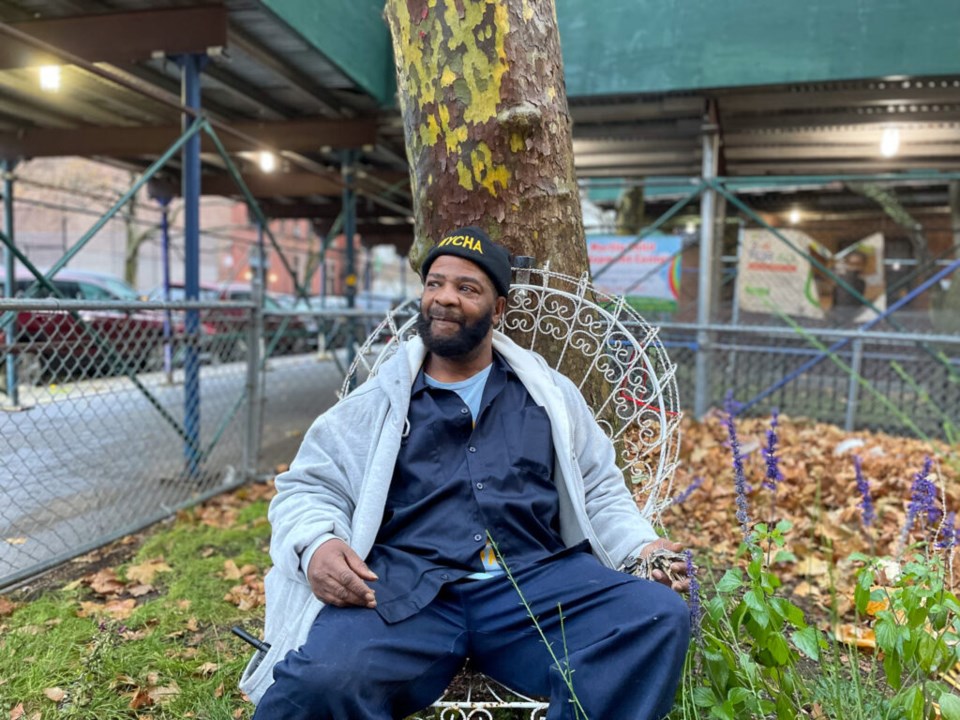
Since BK Reader caught up with Cook in 2021, he'd also moved to a one-bedroom apartment across from Lafayette Gardens, and was now putting some of his love of design and landscaping into making his own space beautiful.
Prior to the move, Cook said he stayed in a room so small he had to fold out his bed each night, and often fell asleep in his chair at his Lafayette Gardens workshop instead.
In 2023, Cook is looking forward to making the gardens as beautiful as he can for the community. He's looking for a couple of volunteers to help him in the new year with mulching and planting.
"Of course, the rats are still gonna do what they're doing, but next year is going to be even better again," he said.

